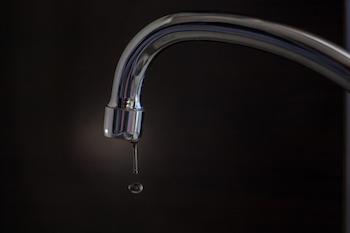5 Tips to Prevent Your Pipes from Freezing
Here in Cincinnati, we know that our winters are COLD. Strike that – with average low temperatures in the 20s, cold is probably an understatement. In addition, with the freezing weather comes the increased risk of freezing pipes. But if you know what causes pipes to freeze and how you can prevent it, you can save yourself a lot of heartaches, hassle, and money.
Understanding Frozen Pipes
We know that water freezes when the temperature dips below 32º F. In the winter, that’s a daily occurrence. The problem is that when water freezes, it expands. This puts a great deal of pressure on the pipe that’s holding it. For instance, if the water expands too much, the pipe will burst. If this happens, the pipe will have to be replaced. In conclusion, if the burst pipe is inside your house, when it thaws, it can cause a lot of damage.
What Pipes Are Most Vulnerable?
- Outside pipes
- Interior pipes in colder areas (the garage, basement, or underneath sinks)
- Pipes in exterior walls
How to Prevent Your Pipes from Freezing
 To clarify, there are plenty of ways you can and should protect your plumbing. Luckily, most are inexpensive and simple. Prevention is key, so make sure your house is ready before the first big freeze. Here are a few tips to make sure you don’t end up needing a visit from the plumber or worse.
To clarify, there are plenty of ways you can and should protect your plumbing. Luckily, most are inexpensive and simple. Prevention is key, so make sure your house is ready before the first big freeze. Here are a few tips to make sure you don’t end up needing a visit from the plumber or worse.
- Firstly, ensure you have adequate insulation in colder areas of the house. This may mean adding a little insulation to keep the area warmer.
- Disconnect exterior hoses. If the water inside the hose freezes, the pressure can put a strain on your entire plumbing system and cause a lot of damage. While you’re disconnecting the hose, be sure to turn off the outside faucets too.
- Keep the heat on. Even if you plan on going out of town, you need to keep the house warm. Saving a few dollars on your electric bill is not worth coming home to a flooded house.
- Make sure kitchen and bathroom sink cabinets open. This will allow the warm air to circulate under the sink.
- Consider foam insulation or heating tape for under the sink if keeping the doors open doesn’t keep the pipes warm enough.
- If you have a sink or shower valve that has frozen in the past, let it drip a little overnight (very slight drip) as flowing water will not freeze.
